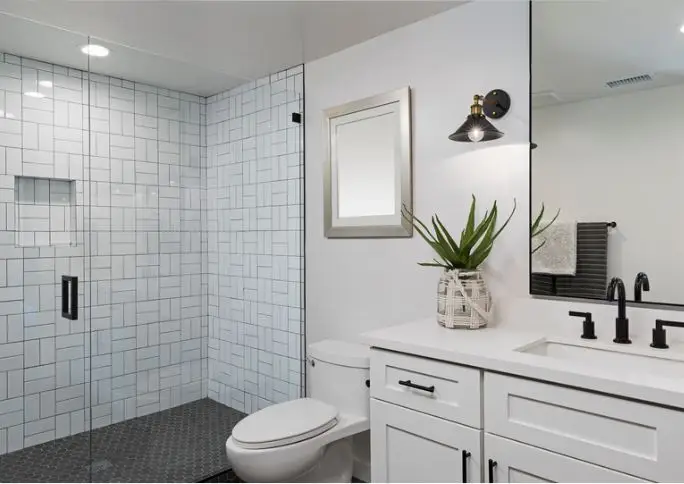
There are many merits to owning your own house. You can paint the walls whatever colour you like, hang pictures without restraint and never worry about a rental inspection again. But great as those perks are, none of them compare to your new ability to use your equity to realise your dreams.
Equity represents the positive gap between your home’s value and the outstanding loan amount.
Initially, your equity will be limited when you purchase a home. For instance, if you buy a house and land package for $600,000, with a $100,000 deposit from your savings and a $500,000 loan, your equity at settlement would be $100,000 ($600,000 – $500,000).
Over five years, sticking to a budget and making additional mortgage payments reduces your loan principal by $100,000, leaving you with $400,000 owed.
Simultaneously, your property appreciates in value. Assuming an average growth rate of 6.8% per year over 25 years, your property’s value could be approximately $850,000. Now, your equity has grown to $450,000 ($850,000 – $400,000).
As you hold onto the property longer, your equity will continue to increase. In the meantime, there are ways to access this money, such as:
First-time home buyers receive significant attention in financial advice for a good reason.. Once you’re past that hurdle, it’s much easier to realise your next property goal. When you sell your property, you’ll realise profits from the increase in value. That takes the pressure off your budget and gives you a head start in affording the next home.

If you’ve just bought your first home then the hardest part is over, look at your property’s equity grow with you and think towards your next property goal.
Do you dream of owning a holiday home or upgrading to a spacious family residence while keeping your current property as a rental? The potential of equity can help make this a reality without requiring you to save for another deposit. If your equity is sufficient, the bank can consider it as collateral for the new property.
Let’s revisit our example. Five years after purchasing, you have $450,000 in equity and owe $400,000 to the bank. You wish to buy a larger home priced at $1M while retaining the original property.
The bank will evaluate two main factors. One is the loan-to-value ratio (LVR) for both properties. Essentially, they’ll determine if your deposit or equity constitutes at least 20% of the combined value. In this situation, you would have a $850,000 property and a $1M property, totaling $1.85M. With $450,000 in equity, you comfortably exceed the 20% threshold that banks typically look for.
However, you’ll still need to prove your capability to manage mortgage payments for both properties, so it’s not an automatic approval. Nonetheless, being able to forgo a new deposit is a significant advantage. Additionally, the rental income from the property you plan to lease will count towards your income for serviceability assessments.

Consider your options as your equity grows! Strike a better deal refinancing your loan or get rid of LMI once your equity reaches 20%.
Refinancing becomes appealing for two primary reasons.The first is to get a better deal on your mortgage. The second is to borrow against your equity for an extension or renovation.
A better deal on your mortgage might be as simple as getting rid of lenders’ mortgage insurance (LMI) once your equity reaches 20%. If you bought your home with a small deposit, you’re probably paying LMI – and you may have accepted a loan rate that wasn’t as low as you may have liked. Once your equity has built up, you become a lower risk borrower and may be able to access better rates.
Depending on your age and circumstances, you may also be able to ‘restart the clock’ with a new 30-year loan. This effectively spreads your remaining payments out over a longer period, lowering your monthly commitment.
Additionally, some loan products are only available to borrowers who want to borrow 60% or less of their home’s value. These are typically offered at low-interest rates, so if you qualify for one of these, it’s worthwhile to take a look.

If you’re planning to sell your property, you may want to consider a renovation first. An updated kitchen or bathroom, or even a rear extension, can substantially add value to your selling price. This then becomes a bigger stepping stone to your dream home.
You can use equity to fund your renovation. A mortgage broker can help you determine how much you may be able to borrow.
You may choose to stay with your current lender or move to a new one. If you have a fixed loan, there will be a break fee to leave before the fixed term is up. Chat to your mortgage broker about the best option.
No matter why you’re refinancing, certain rules still apply. You’ll need to provide the bank with documents including payslips and bank statements. Expect a valuation of your property to be part of the process.
All contents published on this website or otherwise made available by TPG Property Group Pty Ltd to you is general information only and is intended to help you in understanding the products and services offered by TPG Property Group Pty Ltd. The information does not take into considerations of any particular investment objectives or financial situation of any potential reader. It does not constitute, and should not be relied on as, financial, investment, legal or any other professional advice or recommendations both expressed or implied. It should not be used as an invitation to take up any investments or investment services. You are advised to do your own due diligence when it comes to making financial and investment decisions and should use caution and seek the advice of qualified professionals such as accountant, lawyer, or other professional advisors before acting on this or any information. TPG Property Group Pty Ltd, its employees or contractors do not represent or guarantee that the information is accurate or free from errors or omissions and therefore provide no warranties or guarantees. You may not consider any examples, documents, or other content on the website or otherwise provided by us to be the equivalent of professional advice. Nothing contained on the website or in materials available for download on the website provides professional advice in any way. TPG Property Group Pty Ltd disclaims any and all duty of care and liability and assumes no responsibility for and you will indemnify TPG Property Group Pty Ltd against any losses or damages resulting from your use of any link, information, or opportunity contained within the website or any information within it.